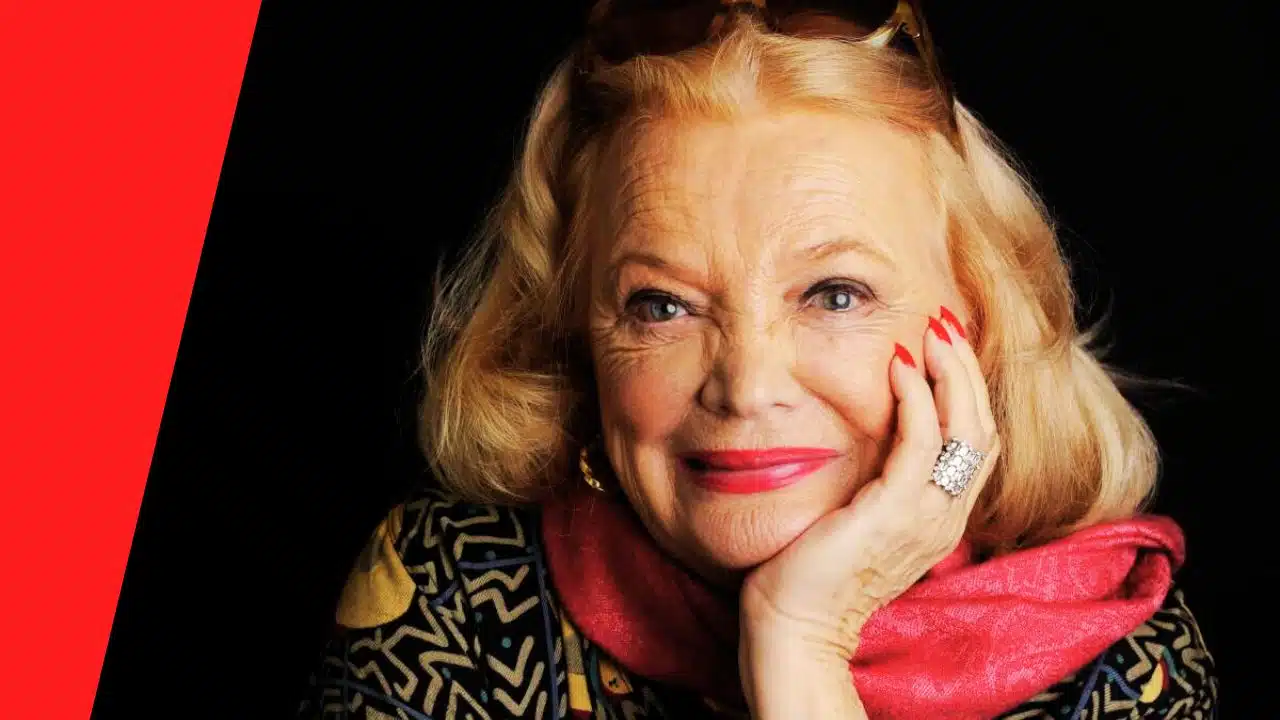Gena Rowlands, the Emmy-winning and Oscar-nominated actress known for her unforgettable roles in films like “A Woman Under the Influence” and “The Notebook,” has passed away at the age of 94, according to reports. Her death was confirmed by the office of her son’s agent, as mentioned by Variety. Rowlands had reportedly been diagnosed with Alzheimer’s disease, a condition that affects memory and cognitive abilities.
A Trailblazer in Film: Rowlands’ Iconic Career and Collaborations with John Cassavetes
Gena Rowlands was a formidable force in Hollywood, renowned for her intense, emotionally charged performances that resonated deeply with audiences and critics alike. She was nominated for the Academy Award for Best Actress twice during her illustrious career, first for her role in “A Woman Under the Influence” in 1974, and then for “Gloria” in 1980. Both of these films were significant collaborations with her husband, the late actor-director John Cassavetes, with whom she shared a unique and influential artistic partnership.
The couple’s collaboration extended to 10 films, which included some of the most notable works in independent cinema. Besides the aforementioned titles, they worked together on “Minnie and Moskowitz” (1971), a film that explored the complexities of love and relationships with a rawness that was rare in cinema at the time. In “Opening Night” (1977), Rowlands portrayed an aging actress grappling with the realities of getting older, a role that showcased her incredible ability to convey vulnerability and strength simultaneously. Their final collaboration, “Love Streams” (1984), was a deeply personal film that delved into the themes of loneliness and human connection.
The Impact of “A Woman Under the Influence” and Industry Recognition
Although she didn’t win the Oscar for “A Woman Under the Influence,” Rowlands’ portrayal of Mabel Longhetti, a wife and mother struggling with mental illness, is widely regarded as one of the greatest performances in film history. The role was groundbreaking in its depiction of a woman’s psychological breakdown within the confines of domestic life, a theme that was not commonly explored with such depth and empathy at the time. The late Peter Falk, who played her husband in the film, was among many who praised her performance, calling it a tour de force that set a new standard for acting in cinema.
Rowlands’ influence extended far beyond her Oscar-nominated roles. She earned three Primetime Emmy Awards, which are among the highest honors in television, recognizing her versatility and talent across different media. Her Primetime Emmy wins included her performances in television films such as “The Betty Ford Story” (1987), where she portrayed the former First Lady, and “Face of a Stranger” (1991), a drama that examined the struggles of an older woman facing homelessness.
In addition to her Primetime Emmys, Rowlands also won a Daytime Emmy Award, showcasing her ability to captivate audiences in daytime television as well. She received two Golden Globe Awards, further cementing her status as one of the most respected and admired actresses in Hollywood. These accolades were a testament to her remarkable range as an actress and her ability to bring authenticity and depth to every role she played.
In 2015, the Academy of Motion Picture Arts and Sciences recognized Rowlands’ extraordinary contributions to film with an honorary Academy Award. This prestigious award celebrated not only her achievements as an actress but also her enduring legacy in the film industry. During her acceptance speech, Rowlands reflected on her career, saying, “You know what’s wonderful about being an actress? You don’t just live one life. You live many lives.” This sentiment captured the essence of her work—through her characters, Rowlands explored a vast array of human experiences, leaving an indelible mark on cinema.
Tributes and Reactions from the Industry
The news of Rowlands’ passing has been met with an outpouring of tributes from fellow actors, filmmakers, and critics, all of whom have expressed their admiration for her talent and her impact on the film industry. Actor Saverio Guerra took to social media to share his grief, stating, “Heartbreaking news. My favorite actress of all time Gena Rowlands has passed away. There will never be another, don’t even try to convince me.” His words echoed the sentiments of many who considered Rowlands a unique and irreplaceable talent.
Film critic Richard Roeper also paid tribute to Rowlands, highlighting her influence not only on audiences but on her peers as well. He described her as a “blazing talent” whose work was universally admired. “Gena Rowlands was the type of actor who was universally admired by other actors, as well as moviegoers,” Roeper said on social media. “What a blazing talent. Thank you for all the great work.” This admiration from within the industry underscores the profound respect Rowlands garnered throughout her career.
Early Life and the Foundation of a Storied Career
Gena Rowlands was born on June 19, 1930, in Madison, Wisconsin, to a family that would eventually influence her path into the arts. Her father, Edwin Myrwyn Rowlands, was a politician, and her mother, Mary Allen Neal, was a painter, which gave Rowlands an early exposure to both the intellectual and creative worlds. This upbringing likely contributed to her strong sense of individuality and her drive to pursue a career in acting.
Rowlands’ passion for acting led her to the American Academy of the Dramatic Arts in New York, a prestigious institution known for producing some of the finest talents in the industry. It was there that she honed her craft, developing the skills that would later define her performances on stage and screen. It was also during this time that she met John Cassavetes, the man who would become not only her husband but also her most significant collaborator.
Rowlands and Cassavetes were married in 1954, and their partnership was one of mutual respect and creative synergy. Cassavetes, who was known for his interest in character-driven stories and innovative filmmaking techniques, found in Rowlands an actress who could bring his complex, emotionally rich characters to life. Together, they challenged the norms of Hollywood filmmaking, creating films that were deeply personal and often defied conventional narrative structures.
“He had a particular sympathetic interest in women and their problems in society,” Rowlands once said of her husband in a 2015 interview with the Associated Press. “How they were treated and how they solved and overcame what they needed to, so all his movies have some interesting women, and you don’t need many.” This insight reflects the deep understanding and empathy that both Rowlands and Cassavetes brought to their work, particularly in their portrayal of female characters.
Later Career and Continued Influence
After the death of John Cassavetes in 1989, Gena Rowlands continued to work in the film industry, often collaborating with her children on various projects. One of her most memorable later performances was in the 2004 film “The Notebook,” directed by her son, Nick Cassavetes. In this romantic drama, Rowlands played the older version of Allie Hamilton, a woman suffering from Alzheimer’s disease, a role that resonated deeply with audiences and showcased her enduring talent.
Rowlands also appeared in “Broken English” (2007), a film written and directed by her daughter, Zoe Cassavetes. The film explored the complexities of modern relationships and the struggles of finding love in a contemporary world. Rowlands’ performance in this film was yet another reminder of her ability to bring depth and nuance to her characters, even in her later years.
Throughout her career, Gena Rowlands remained a vital and influential figure in the film industry. Her performances were characterized by an emotional honesty and a willingness to explore the darker, more challenging aspects of human experience. Her work has inspired generations of actors, directors, and filmmakers, and her legacy continues to be felt in the world of cinema.
A Lasting Legacy
Gena Rowlands’ death marks the end of an era in Hollywood, but her legacy will continue to live on through her films and the impact she had on the industry. She was more than just an actress; she was a pioneer who helped to redefine the role of women in film and pushed the boundaries of what cinema could achieve. Her contributions to the art of acting and her influence on the next generation of filmmakers ensure that her memory will be cherished for years to come.
As the tributes continue to pour in, it is clear that Gena Rowlands will be remembered not only for her incredible talent but also for her contributions to the art of storytelling. Her work has left an indelible mark on the world of cinema, and her legacy as one of the greatest actresses of her time is firmly secured.


































